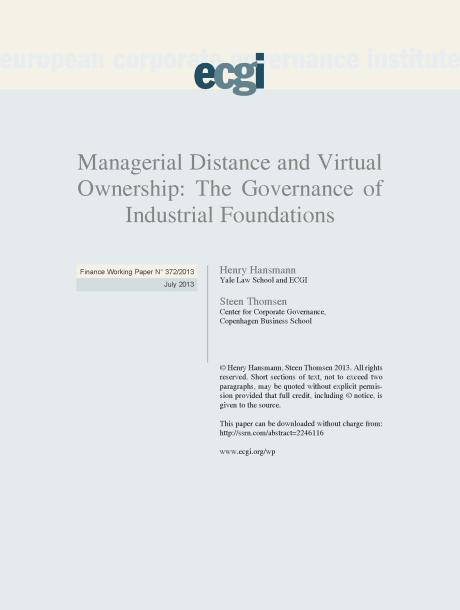
Managerial Distance and Virtual Ownership: The Governance of Industrial Foundations
Abstract
Industrial foundations are autonomous nonprofit entities that own and control one or
more conventional business firms. These foundations are common in Northern Europe,
where they own a number of internationally prominent companies. Previous studies have indicated, surprisingly, that companies controlled by industrial foundations are, on average, as profitable as companies with conventional patterns of investor ownership. In this article, we explore the reasons for this performance, not by comparing foundation-owned firms with conventional investor-owned firms, but rather by focusing on differences among the industrial foundations themselves. We work with a rich data set comprising 113 foundation owned Danish companies over the period 2003-2008. We focus in particular on a composite structural factor that we term ?managerial distance.? We propose this as a measure of the extent to which a foundation establishes an identity that is distinct from that of the company it owns. More particularly, we hypothesize that, within limits, greater managerial distance increases the intensity, clarity, and objectivity with which the foundation?s board of directors ? which holds ultimate control of a foundation-owned company -- focuses on the company?s profitability. In effect, a substantial degree of distance puts members of the foundation board in the position of ?virtual owners,? in the sense that information and decisions are framed for the board in roughly the
way they would be framed for profit-seeking outside owners of the company. Consistent with this hypothesis, our empirical analysis shows a positive, significant, and robust association between managerial distance and the economic performance of foundation-owned companies. The findings appear to illuminate not just foundation governance, but corporate governance and fiduciary behavior more generally.











